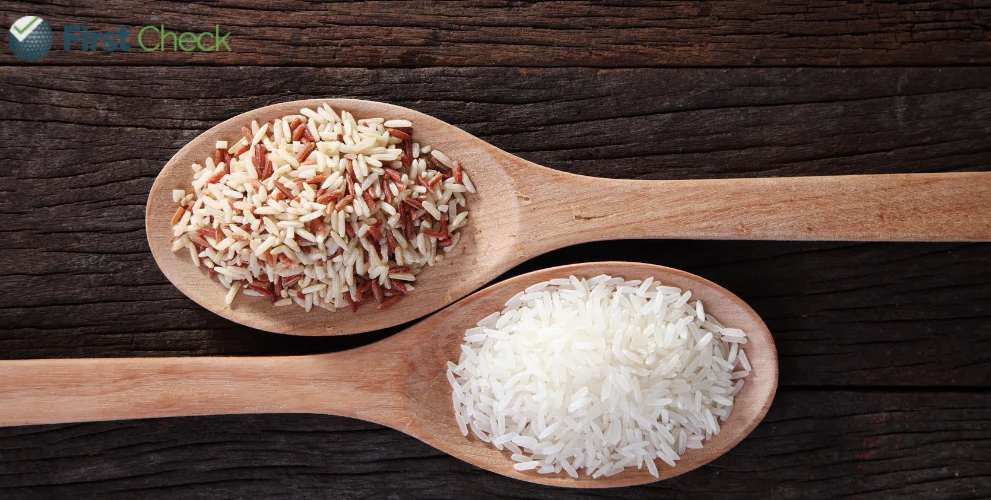Latest
Fact-check: Pros and cons of brown rice, white rice
Author
Author
- admin / 11 months

- 0
- 3 min read

Brown rice contains higher levels of fibre and vitamins. However, it also has more arsenic, a toxic compound that can be troublesome for those with weak digestion.
Which is healthier – brown rice or white rice? The question is often asked. First Check gets you the answer, backed by science and a nutritionist’s take.
Let’s first understand the key difference between brown rice and white rice. Brown rice is a whole grain with only the hull removed, retaining the nutrient-rich bran and germ, giving it a chewier texture and nuttier flavour. On the other hand, white rice is more processed, with the bran and germ removed, resulting in a finer texture and longer shelf life, but it is less nutrient-dense.
Watch: Brown Rice vs White Rice : What Should You Consume?
White rice cooks faster than brown rice, making it convenient for quick meals. Its lower fibre content can be easier on the digestive system for some people. However, white rice has fewer nutrients, a high glycaemic index which can spike blood sugar, and may leave you feeling hungry sooner due to its lower fibre content.
Brown rice is high in fibre, helping with digestion and making you feel full, which is good for weight management. It is rich in vitamins and minerals, including B vitamins, and helps keep blood sugar levels steady. However, brown rice costs more, and has a shorter shelf life due to the presence of natural oils in the bran.
“Brown rice is known to be more nutritious than white rice as it contains higher levels of fibre and B vitamins. However, it also has more arsenic, a toxic compound that can be troublesome for those with weak digestion,” informs Debjani Gupta, a nutrition and wellness expert from Mumbai, India.
“Whether you prefer brown rice or white rice, controlling your portions and balancing your diet with fibre-rich vegetables and protein is crucial,” she says. The same principle holds true for diabetes management and weight management.
The choice between brown rice and white rice ultimately depends on personal preference, dietary needs, and what’s available locally. It’s important to remember that a balanced diet entails eating a wide variety of healthy foods.
To fact-check health claims, write to us at hello@firstcheck.in or WhatsApp us on +91 9311 223145. You can also connect with us on First Check WhatsApp channel to stay updated on health research and stories.
Read More : Fact-check: Reducing calories in rice by adding coconut oil










